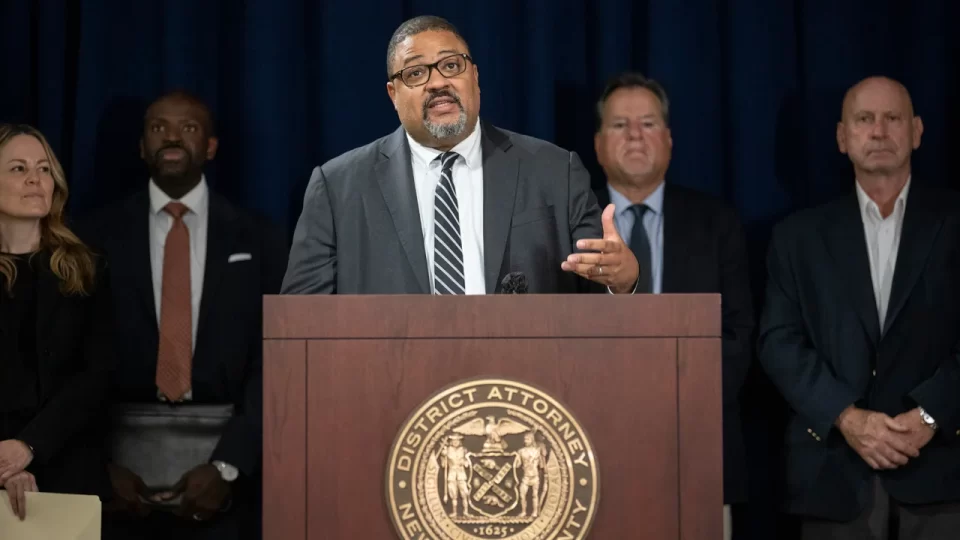No Surprise, Fox Ignored Anti-Black Vilification
Sobering Birthday for a Moscow Bureau Chief
Whose City Gets to Be Called Black? – Part 2
Philly’s Black Journalists to Accept City Money
4 Podcasts Go as NPR Cuts 10 Percent of Staff
Godwin Announces Cuts at ABC, Shuffles Team
Guardian to Launch ‘Restorative Justice’ Program
‘PBS NewsHour’ Highlights Plight of Missing Latinas
Innovative News Delivery Attracts Spanish Speakers
Ideas for Ending Media Complicity in Crime
Readers Tell How Changing Demographics Affect Names
Short Takes: Elon Musk’s poop emoji; Alberto Ibarguen; Randy Archibold; HUD advertising dollars to Black media; interviews with this generation’s “most powerful” AAPI women; lack of support for Asian American employees; anchor who repeated Snoop Dogg’s term for the n-word; American Magazine Awards;
Stories about Native Americans without quoting any; effect of banking crisis on people of color; more on Jim Trotter and Roger Goodell; Joshua Johnson; Florida indictment in shooting of journalist; Vlad Duthiers; Mumia Abu-Jamal; Sheila Johnson; media complicity in lies of Brazil’s Jair Bolsonaro; Costa Rican president’s systematic persecution of news outlets; explosives sent to Ecuadoran journalists’ desks; Malawi’s deadly cholera outbreak; officials accused in Cameroon journalist’s death.
Homepage photo: Alvin Bragg, Manhattan district attorney, during a news conference Oct. 19, 2022. (Credit: Benjamin Norman/New York Times)
Support Journal-ismsDonations are tax-deductible.
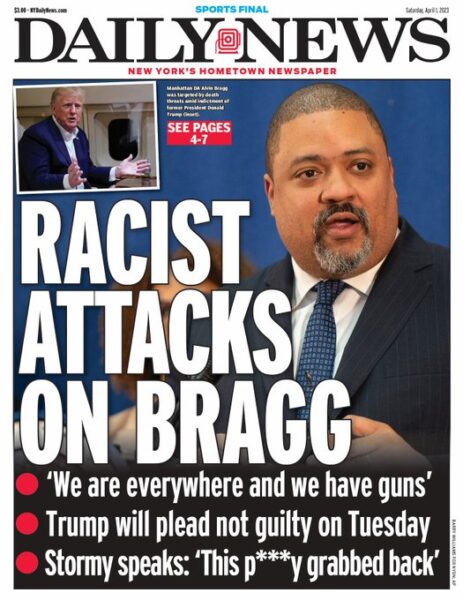
No Surprise, Fox Ignored Anti-Black Vilification
In New York style, it’s in your face. The front page of Saturday’s Daily News:
“Manhattan DA Alvin Bragg inundated with racist emails, death threats amid Trump indictment; ‘We are everywhere and we have guns.’”
Wrote Molly Crane-Newman: “Included in a litany of profane, typo-laden emails sent to Bragg on the heels of Trump’s Thursday indictment were overtly racist and anti-Semitic insults and threats on the DA’s life.
“ ‘Hay George Soros a** hole puppet If you want President Trump come and get me to,’ read one email. ‘Remember we are everywhere and we have guns.’
“Trump was indicted Thursday by a Manhattan grand jury in the Stormy Daniels hush money probe, a historic legal development marking the first criminal charges ever brought against a current or former U.S. president. He is expected to surrender Tuesday and face arraignment in Manhattan Supreme Court.
“People apparently unhappy about Bragg’s still-sealed indictment against Trump targeted multiple email addresses associated with Bragg’s website. The correspondence was shared exclusively with the Daily News by a senior adviser to Bragg, who asked to remain anonymous.
“ ‘How do we a a [n—-r] like you removed feom office?’ read another email.
“On a section of Bragg’s campaign website, where people can sign up to receive updates about Bragg’s work, scores of people entered fake names using racial epithets targeting the DA. The majority included despicable language like ‘bl*** trash [f—-r]’ and ‘Aids Infested…’ ”
The racist and anti-Semitic aspects of the Donald Trump counterpunch have not been foremost in the overall media coverage, but in many places, they have been prominent.
That’s with one gaping, but not surprising, exception, true even before the indictment was announced Thursday.
“Fox News has completely ignored recent Truth Social posts by former President Donald Trump that included a racist attack and suggestions of violence,’ Noah Dowe wrote March 24 for Media Matters for America.
“In a series of posts on his Truth Social platform, Trump referred to Manhattan District Attorney Alvin Bragg — Manhattan’s first Black DA — as a ‘Soros backed animal,’ a ‘degenerate psychopath,’ and warned of ‘death and destruction’ should he be indicted. Bragg is investigating the former president’s alleged involvement in a hush money scheme to silence porn actor Stormy Daniels just days before the 2016 election.
“Fox News has not covered Trump’s posts. The network has, however, spent time attacking Bragg this week over the potential indictment, including by attempting to tie him to philanthropist George Soros,” a dog-whistle of anti-Semitism, some have noted.
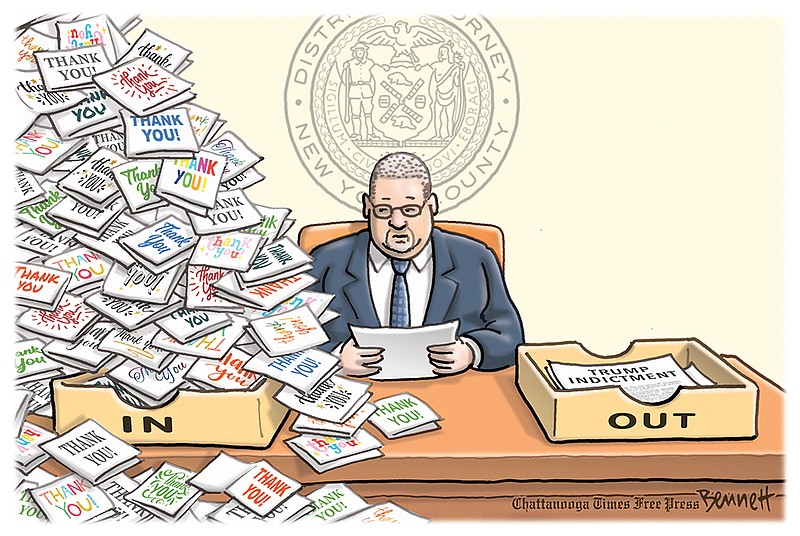
The Bragg-Soros connections are “are real but overstated,” Linda Qiu reported March 23 for the New York Times:
“In reality, Mr. Soros donated to a liberal group that endorses progressive prosecutors and supports efforts to overhaul the criminal justice system — in line with causes that he has publicly supported for years. That group used a significant portion of the money to support Mr. Bragg in his 2021 campaign.
“A spokesman for Mr. Soros said that the two men had never met, nor had Mr. Soros given money directly to Mr. Bragg’s campaign.”
Journalists of color have homed in more than most others on the Trump defenders’ deployment of racism.
The website Capital B noted Thursday that Bragg isn’t the only Black prosecutor who can expect such treatment. “As early as this spring, Fulton County District Attorney Fani Willis, the first Black woman to serve in the role, could bring racketeering and conspiracy charges against Trump for his attempts to overturn the 2020 presidential election in Georgia,” Brandon Tensley, Christina Carrega and Chauncey Alcorn reported.
“And last September, following a three-year investigation, Attorney General Letitia James, the first Black woman elected to statewide office in New York, sued Trump, three of his adult children, and the Trump Organization, among others, in a civil fraud case.”
On msnbc.com, columnist Zeeshan Aleem wrote Friday, “Shortly after news of the indictment emerged, Sen. JD Vance, R-Ohio, tweeted: ‘A week ago a video circulated of a lunatic harassing a family on a New York subway. He hurled racial slurs (the family was white) and threatened them. Alvin Bragg thinks that man should walk free and Donald Trump should go to jail for a fake misdemeanor. It’s despicable.’
“The story he wants to tell is that white civilization is under attack and that a Black man is helping lead the movement,” Aleem wrote.
In The New York Times, columnist Charles M. Blow noted the wider implications. “While Trump disparaged minorities on a national level — civil rights protesters, immigrants and Muslims — today’s Republicans have started to codify oppression on a local level,” Blow wrote.
“They provide legislative bite for Trump’s rhetorical bark. They’re what Trumpism looks like without him, what intolerance looks like when you dress it up and make it dance.”
- Jon Allsop, Columbia Journalism Review: Has the press learned to cover Trump better? The past week suggests not.
- Oliver Darcy, CNN: Rupert Murdoch’s media machine offers full-throated defense of Trump after grand jury indictment
- Gerren Keith Gaynor, the Grio: Black Leaders See Irony in Trump Indictment
- Emil Guillermo, Asian American Legal Defense and Education Fund: Pondering the historic indictment in New York, and the first presidential mugshot? (March 21)
- Josephine Harvey, HuffPost: Exonerated Central Park 5 Member Has 1-Word Statement On Trump’s Indictment
- Derrick Z. Jackson, The Root: Democrats: Why in the Hell Are Black People Moving to Red States? (March 3)
- Sydney Kashiwagi, CNN: Who is Alvin Bragg, the Manhattan DA leading the probe into Trump’s role in hush money scheme?
- Alexander Nazaryan, Yahoo: Alvin Bragg, the progressive prosecutor who could take down Donald Trump
- Lis Power, Media Matters for America: Fox finds its boogeyman for Trump’s indictment: George Soros
- Perry Stein and Shayna Jacobs, Washington Post: Trump lashes out against New York judge [Juan Merchan] who will hear his criminal case
- Jessica Washington, the Root: 5 Things To Know About Trump’s Historic Indictment
- Jason Whitlock, Twitter: “I have never voted Tucker. I am hardcore MAGA tonight. M-A-G-A.”
Sobering Birthday for a Moscow Bureau Chief
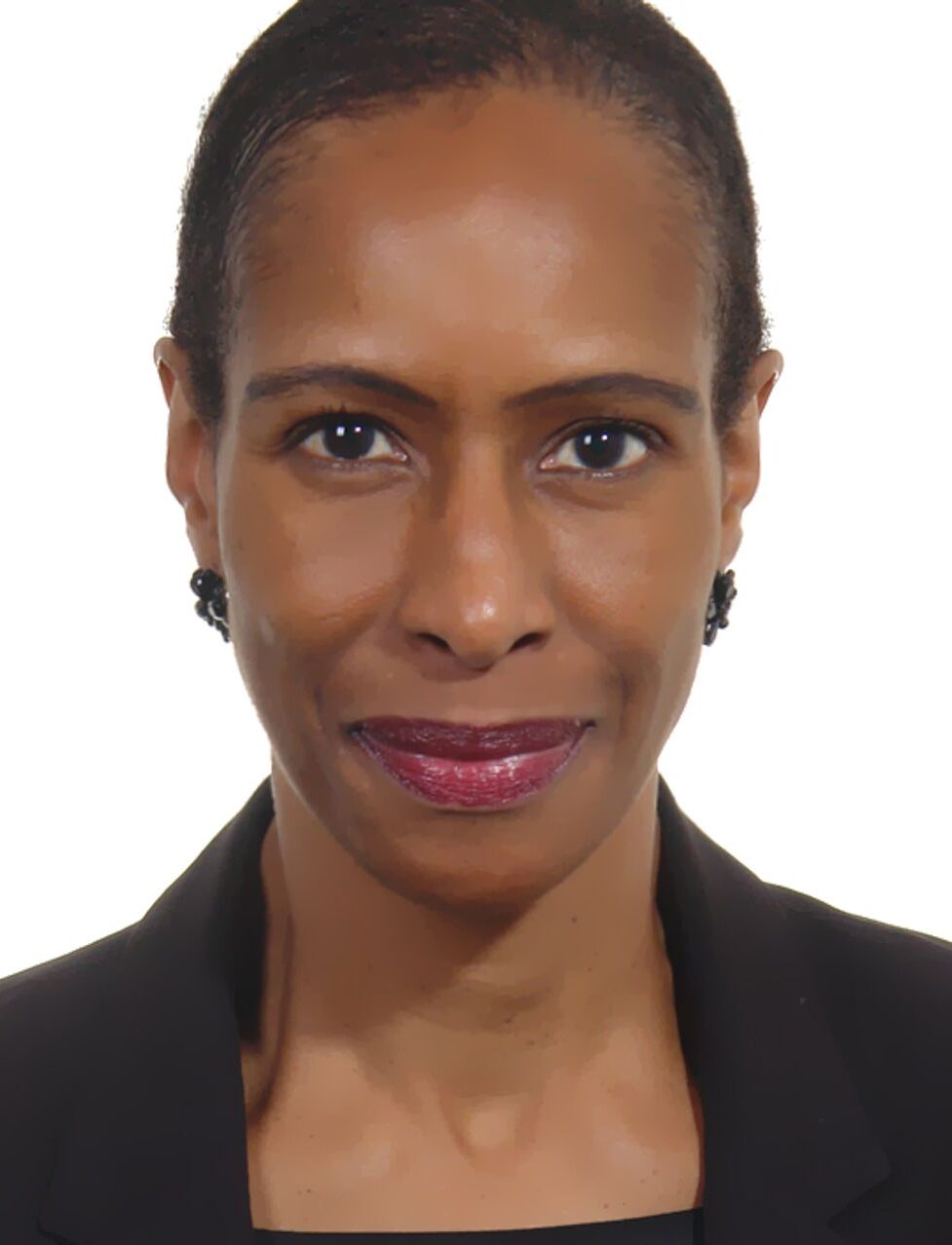 Saturday marks a sobering birthday for Ann M. Simmons (pictured), Moscow bureau chief for The Wall Street Journal.
Saturday marks a sobering birthday for Ann M. Simmons (pictured), Moscow bureau chief for The Wall Street Journal.
Simmons noted the occasion on Facebook, adding, ”’my thoughts and prayers are with Evan Gershkovich, the young man I hired as a correspondent in the Moscow bureau for The Wall Street Journal shortly before Russia launched its invasion of Ukraine.
“Russian authorities arrested Evan earlier this week on charges of espionage, a crime that carries a possible 20-year jail sentence, if convicted.
“To be clear, Evan is no spy! He is a highly dedicated and professional journalist, widely respected among his colleagues. My heart is heavy. I pray for dear Evan and his family this day. #IStandWithEvan.”
Secretary of State Antony Blinken has said U.S. citizens inside Russia should leave immediately, though White House National Security Council spokesman John Kirby said he did not know of U.S. government efforts to tell news organizations to remove their reporters from Russia.
Caitlyn Reuss, senior communications manager at The Wall Street Journal, did not respond to a question about whether Simmons would be leaving the country.
Simmons stands in a short line of Black correspondents who have reported from Russia.
She described the experience in an appearance at the Wilson Center in 2021, saying, “People have become accustomed to seeing people of color. If you do go back into the hinterland, and when I’m reporting out there, there is a bit more curiosity, like if you go to remote parts of Russia or some of the other autonomous republics, or out to Siberia or Yakutia where people still want to take your photograph because they’re not used to seeing Black people. There is a lot more curiosity out there.”
- Gary Lee, Washington Post: Black Among the Reds (April 21, 1991)
- Jovonne Ledet, Black Information Network: Brittney Griner Calls For Release Of American Journalist Detained In Russia (April 2)
- Joe Parkinson and Drew Hinshaw, Wall Street Journal: Evan Gershkovich Loved Russia, the Country That Turned on Him
- Wall Street Journal: Evan Gershkovich ‘Belongs in This Newsroom’: WSJ Journalists Speak Out (video)
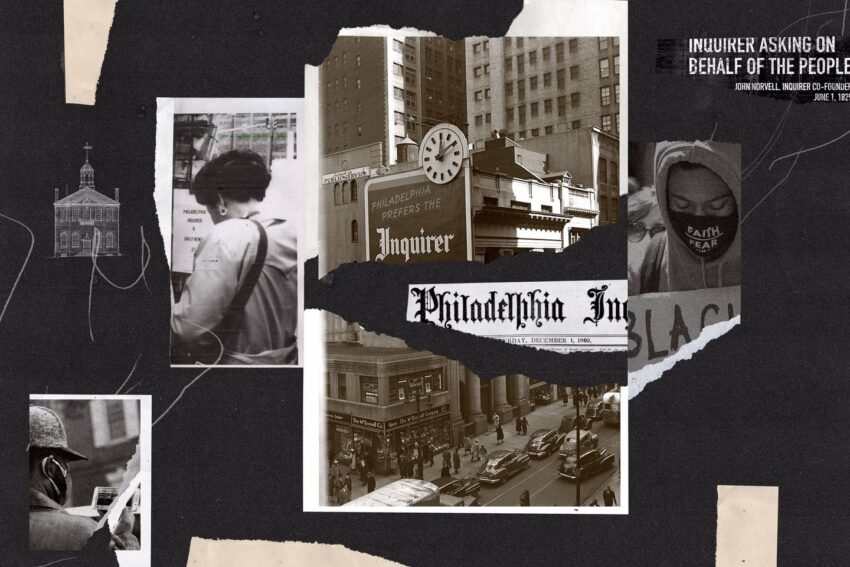
The Philadelphia Inquirer’s caption read, “The summer of 2020 forced a reckoning for the country, Philadelphia, and its newspaper. But after perpetuating inequality for generations, can The Inquirer really become an anti-racist institution?” (Illustrations by Mark Harris/Philadelphia Inquirer)
Whose City Gets to Be Called Black? – Part 2
Can a jurisdiction be a “Black city” even though Blacks are less than half the population?
Yes, says journalist Wesley Lowery, who has been chosen by Morgan State University’s School of Global Journalism & Communication to pick up its 2022 Vernon Jarrett Medal for Journalistic Excellence. The prize is for “Black City. White Paper,” which, framing aside, is an admirable look at the Philadelphia Inquirer’s own racial history. The medal comes with a check for $10,000 and a summer intern from the School of Global Journalism and Communication.
But as noted last year in this space under the headline, “Whose City Gets to Be Called Black?” Philadelphia is not a majority Black city, and the headline could be read as failing to take into account that newspaper circulation areas go beyond the city limits.
Updated census figures show that Philadelphia is 41.36 percent Black, just two percentage points above the number of whites, who are at 39.33 percent.
When Black people who are not also Hispanics are tallied, to prevent Afro Latinos from being counted twice, the Black figure falls to 38.3 percent, according to William H. Frey, a prolific demographer who wrote about the 2020 Census results for the Brookings Institution, where he is a senior fellow.
“The plurality of the population of the city Philadelphia is black — as is noted explicitly in the piece — and thus it is accurately [referenced] colloquially as a ‘black city,’ ” Lowery messaged Journal-isms Thursday.
Dean Jacqueline Jones added, “Wes Lowery’s story never claimed that Philadelphia is a ‘majority Black’ city. What he wrote was: ‘The years since [George] Floyd’s death have forced the newspaper to face the reality that it, much like the democracy born in this city, has failed to fulfill the ideals of its founding. Rather than being an ‘inquirer for all,’ as its motto proudly claims, the paper has for the whole of its history been written largely for and by white Philadelphians, and largely at the expense of the Black residents who currently constitute a plurality of the city.”
“Black City. White Paper,” which inaugurated “A More Perfect Union,” a project that “examines the roots of systemic racism in America through institutions founded in Philadelphia,” was edited and managed apart from the Inquirer’s regular editing staff.
Meanwhile, Jones said in a news release, “For just the third time in the history of the award, there was a runner-up. Yanick Rice Lamb, a journalism professor in the Cathy Hughes School of Communications, as well as a doctoral candidate at Howard University, will receive a medal and a $7,500 prize.
“The native Ohioan’s submission, ‘Unintended Consequences: The Rubber Industry’s Toxic Legacy in Akron‘ was praised by judges as ‘an exemplary piece of research about deindustrialization and its impact on a marginalized community.’ “
The awards are to be presented April 6 at the National Press Club in Washington.
- Lynette Hazelton and Valerie Russ, Philadelphia Inquirer: Everyone in Philly knows illegal dumping is a problem. But for many Black, brown, and low-income residents, it’s a crisis.
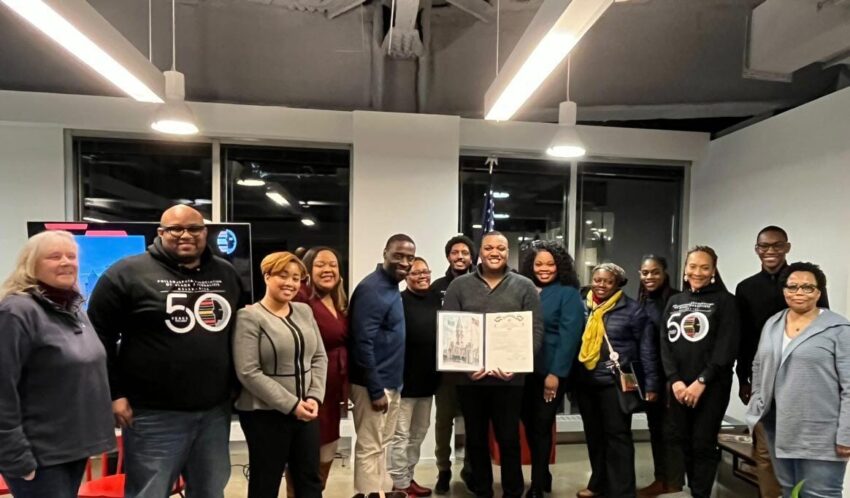
Philly’s Black Journalists to Accept City Money
“THIS IS THE WORK!,” Ernest Owens, president of the Philadelphia Association of Black Journalists, announced March 14 on Facebook. “Members of Philadelphia City Council presented the Philadelphia Association of Black Journalists with a Resolution honoring us as we kick off our 50th anniversary!
“Even better news: They are putting us in the city budget for funding!”
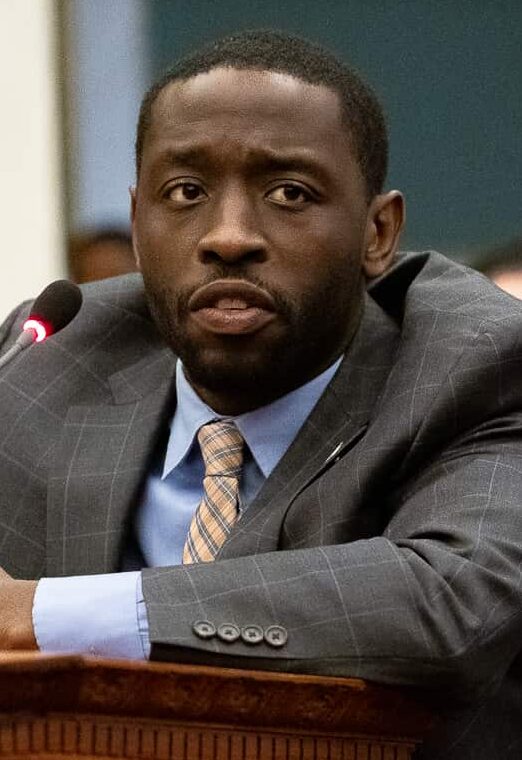 Owens told Journal-isms that the specific amount has not been determined, but that the money would go to PABJ for its youth mentorship and career development programs as part of arts and culture grants going to nonprofits. The sponsor is Councilman Isaiah Thomas (pictured), whose office did not respond to a request for comment.
Owens told Journal-isms that the specific amount has not been determined, but that the money would go to PABJ for its youth mentorship and career development programs as part of arts and culture grants going to nonprofits. The sponsor is Councilman Isaiah Thomas (pictured), whose office did not respond to a request for comment.
While the notion of an organization of journalists accepting money from the government has raised questions elsewhere about firewalls between the two groups, Owens told Journal-isms that this money will in no way influence the journalists who belong to PABJ.
“We’re not a news organization,” Owens said, but a nonprofit. The amount would be “way less than 10 percent of what our current budget is.” It’s important that PABJ diversify its funding sources, and if anyone from the city suggested any quid pro quo from a PABJ member, PABJ would give the money back, Owens said.
A skeptic points out that PABJ is sponsoring an upcoming mayoral forum in which former City Council people are running for mayor, that many mayoral candidates and elected mayors come from City Council, and that PABJ members could cover or are covering City Hall.
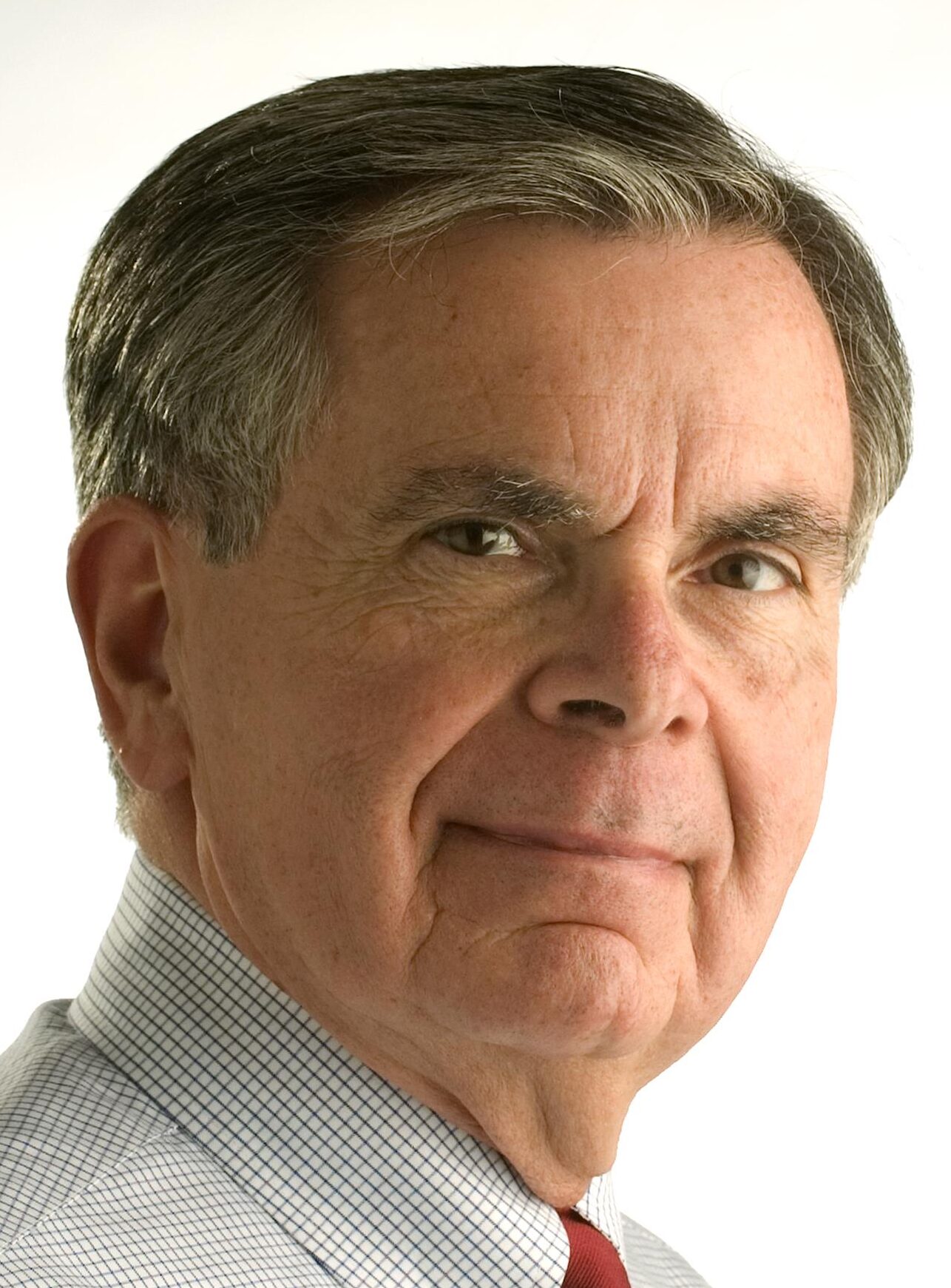 Fred Brown (pictured), current chair and longtime member of the Ethics Committee of the Society of Professional Journalists, identifies himself as “a former political writer, editor and columnist who used to be an active supporter of the Newspaper Guild — until it endorsed George McGovern in the 1972 presidential election.
Fred Brown (pictured), current chair and longtime member of the Ethics Committee of the Society of Professional Journalists, identifies himself as “a former political writer, editor and columnist who used to be an active supporter of the Newspaper Guild — until it endorsed George McGovern in the 1972 presidential election.
“This situation is pretty much the other side of that coin — government supporting journalists’ good intentions instead of journalists getting involved in a political contest,” Brown emailed Journal-isms. “And, even if the council’s efforts aren’t 100 percent altruistic (and there’s that innate journalistic skepticism butting into the conversation), the result is salutary.
“As you say, if there’s any hint of quid pro quo pressure, the money will be returned. And newspapers already benefit from laws requiring governments to publish legal notices in ‘papers of record’ and tax exemptions that also help the industry.
“Here in Colorado, and elsewhere, there even have [been] discussions of taxpayer-funded assistance for struggling publications. Take a look at this piece from October 2019.
“There are cynics in our business who are hostile to anything that might make it seem that they are ‘playing nice’ with government. My approach has always been that press and pols should respect each other until and unless there’s clearly a good reason not to. This isn’t a prey-predator, ‘natural enemies’ situation.
“So I’d be inclined to gracefully and graciously accept the donation. . . .”
4 Podcasts Go as NPR Cuts 10 Percent of Staff
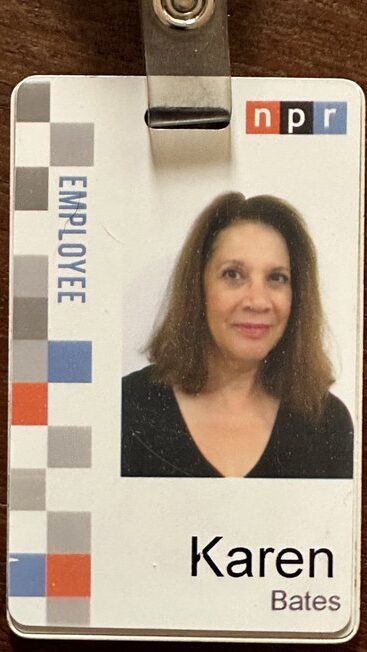 “It was a good run — 21 years — but it’s just about done,” Los Angeles-based NPR correspondent Karen Grigsby Bates (pictured) tweeted March 23. “Tough economic realities meant NPR had to let go of some 100 employees. I was among that number. I am sad that I won’t be working with some of the fabulous people who make NPR. But I am grateful to have work that meant so much.”
“It was a good run — 21 years — but it’s just about done,” Los Angeles-based NPR correspondent Karen Grigsby Bates (pictured) tweeted March 23. “Tough economic realities meant NPR had to let go of some 100 employees. I was among that number. I am sad that I won’t be working with some of the fabulous people who make NPR. But I am grateful to have work that meant so much.”
 Thomas Lu (pictured) producer for six years of the NPR science podcast “Short Wave,” tweeted Monday, “After ~6.5 years @npr, I was ‘impacted’ by the #NPRLayOffs. I’ve cycled through sadness, frustration, embarrassment, shame, & even relief & joy. But above all grateful for the paths I’ve crossed. Never would 10-year-old gay, Viet American me imagine this adventure I’ve been on.”
Thomas Lu (pictured) producer for six years of the NPR science podcast “Short Wave,” tweeted Monday, “After ~6.5 years @npr, I was ‘impacted’ by the #NPRLayOffs. I’ve cycled through sadness, frustration, embarrassment, shame, & even relief & joy. But above all grateful for the paths I’ve crossed. Never would 10-year-old gay, Viet American me imagine this adventure I’ve been on.”
And Chiara Eisner, a national multimedia investigative reporter, tweeted March 24, “I was laid off @NPR as part of the massive cuts. I loved the i-team and wanted to stay for years, but here we are.
“Please let me know if you’re looking for a multimedia, bilingual reporter w/ experience investigating environment, healthcare, tech, immigration & criminal justice.” She also wrote, ” I will move anywhere. I’ve reported from Honduras to South Carolina to the Arctic, and loved it all.”
As David Folkenflik and Mary Yang reported in an NPR story updated March 24, “NPR moved this week to cut 10% of its staff and stop production of a trio of acclaimed seasonal podcasts — Invisibilia, Louder Than a Riot and Rough Translation — as it seeks to close a yawning budget gap that stands in excess of $30 million.
“The network also canceled a comedy podcast unveiled just a year ago called Everyone & Their Mom, a spinoff of the mainstay radio program Wait Wait Don’t Tell Me.
” ‘We literally are fighting to secure the future of NPR at this very moment by restructuring our cost structure. It’s that important,” NPR chief executive John Lansing said in an interview. “It’s existential.”
The music podcast “Louder Than a Riot” tweeted March 23, “w/in NPR, the majority impacted in these layoffs were queer, poc staff & programs. NPR has claimed qtpoc ppl are the same ppl they are trying to reach with their ‘North Star’.”
NPR spokesperson Isabel Lara disputed that assertion. “We followed our company-wide principle of ensuring that position eliminations did not disproportionately impact people of color and other historically marginalized groups,” Lara told Journal-isms by email.
“Our plan, including the proposed eliminations in DMU [Digital Media United], would result in substantially the same demographic breakdown as before the reduction in force; specifically, based on the data available to us, representation would continue to be around 42% people of color, 58% women, 26% women of color, 17% men of color, 4% who identify as disabled, and 2% transgender/non-binary/gender non-conforming identity, and the average age continues to be 42 years old.
“We will provide an update if there are any changes to the data after DMU bargaining concludes. . . . it has been a really hard and painful week.”
- Ashley Carman, Bloomberg: Tensions Flare Inside NPR After Staff Layoffs and Town Halls
- Sarah Larson, New Yorker: Audie Cornish’s Long Struggle to Remake the News (March 24)
- Lisa Napoli, Current: Drive to survive: The ‘brightest and darkest time’ at NPR
- Thomas E. Patterson, Nieman Lab: Public radio can help solve the local news crisis — if it will expand staff and coverage
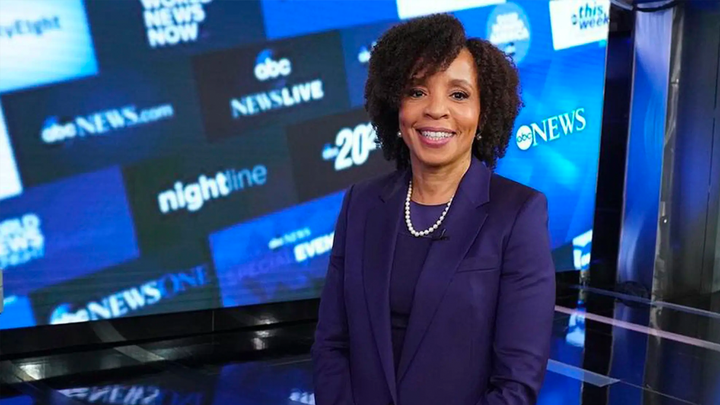
Godwin Announces Cuts at ABC, Shuffles Team
“The Disney layoffs have hit ABC News,” Alex Weprin reported Thursday for the Hollywood Reporter.
“The broadcast news division is laying off 50 people as part of the company’s planned cuts, with ABC News president Kim Godwin reorganizing her senior leadership team. Godwin announced the changes in a note to staff Thursday morning. . . .”
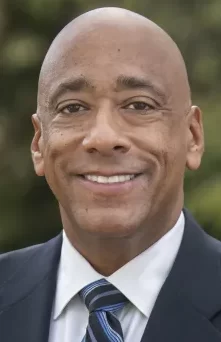 “The new structure will see Katie den Daas become vp newsgathering; Derek Medina (pictured) add oversight of talent strategy, production operations and business affairs; and Stacia Deshishku add oversight of investigative and enterprise reporting, as well as booking.
“The new structure will see Katie den Daas become vp newsgathering; Derek Medina (pictured) add oversight of talent strategy, production operations and business affairs; and Stacia Deshishku add oversight of investigative and enterprise reporting, as well as booking.
“As part of the changes, a number of senior ABC News staffers are leaving the company, including senior vp newsgathering Wendy Fisher; senior vp talent Galen Gordon; vp talent Mary Noonan; vp corporate communications Alison Rudnick; senior executive producer Chris Vlasto; executive editorial producer Heather Riley; and Los Angeles bureau chief David Herndon. . . .”
In reporting on a rare interview with Godwin, Charlotte Klein wrote March 16 for Vanity Fair, “Some insiders feel that Godwin is reluctant to lean on others and could be more communicative. ‘She’s making unforced errors because she doesn’t trust the people around her. A lot of us who want to see her succeed are just frustrated,’ one longtime ABC News employee told me.”
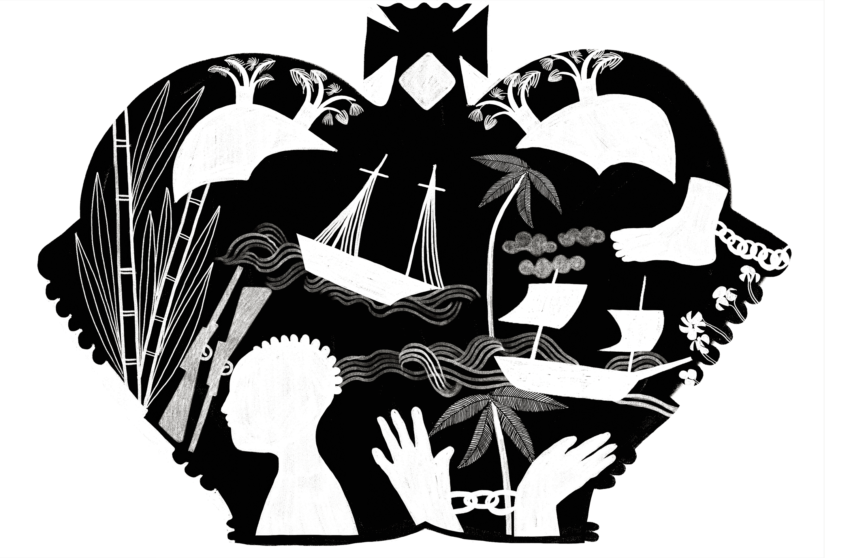
Guardian to Launch ‘Restorative Justice’ Program
“The owner of the Guardian has issued an apology for the role the newspaper’s founders had in transatlantic slavery and announced a decade-long programme of restorative justice,” Nicola Slawson reported Wednesday for the Guardian.
“The Scott Trust,” owner of the Guardian, “said it expected to invest more than £10m ($12.3m), with millions dedicated specifically to descendant communities linked to the Guardian’s 19th-century founders.
“It follows independent academic research commissioned in 2020 to investigate whether there was any historical connection between chattel slavery and John Edward Taylor, the journalist and cotton merchant who founded the newspaper in 1821, and the other Manchester businessmen who funded its creation.
“The Scott Trust Legacies of Enslavement report, published yesterday, revealed that Taylor, and at least nine of his 11 backers, had links to slavery, principally through the textile industry. Taylor had multiple links through partnerships in the cotton manufacturing firm Oakden & Taylor, and the cotton merchant company Shuttleworth, Taylor & Co, which imported vast amounts of raw cotton produced by enslaved people in the Americas.
“How did we uncover the Guardian founders’ links to slavery? The process of uncovering where exactly the founder of the Manchester Guardian, John Edward Taylor, and his associates were importing cotton from was a lengthy and difficult one, writes Cassandra Gooptar.
“What will the Guardian do now? The Scott Trust expects to commit more than £10m to a restorative justice programme of work over the next 10 years. The fund will support community projects and programmes in the south-eastern US Sea Islands and Jamaica. The fund will increase the scope and ambition of Guardian reporting on the Caribbean, South America and Africa, and on Black communities in the UK and US (up to 12 new editorial roles within the Guardian).”
Veteran journalist Susan Smith Richardson, who is African American, worked on the project as Guardian managing editor. She said it was helmed by two Black editors in the U.K., Joseph Harker and Maya Wolfe-Robinson.
- DeNeen L Brown, the Guardian: The Gullah Geechee Fight for a Legacy After Slavery
- Cassandra Gooptar, the Guardian: How We Uncovered the Guardian Founders’ Links to Slavery
- Nadine White, the Independent: Racism is ‘commonplace’ in UK journalism with more senior Black staff needed across industry, report warns
- Gary Younge, the Guardian: Lest we remember: How Britain Buried its history of slavery
‘PBS NewsHour’ Highlights Plight of Missing Latinas
“Last year, more than 270,000 women and girls went missing across the country,” the “PBS NewsHour” reported Tuesday. “Studies have shown that when women of color disappear, they are far less likely to receive media attention. As Laura Barrón-López reports, along with producers Karina Cuevas and Mike Fritz, the case of a missing immigrant in Boston is raising new concerns about how fast police respond.”
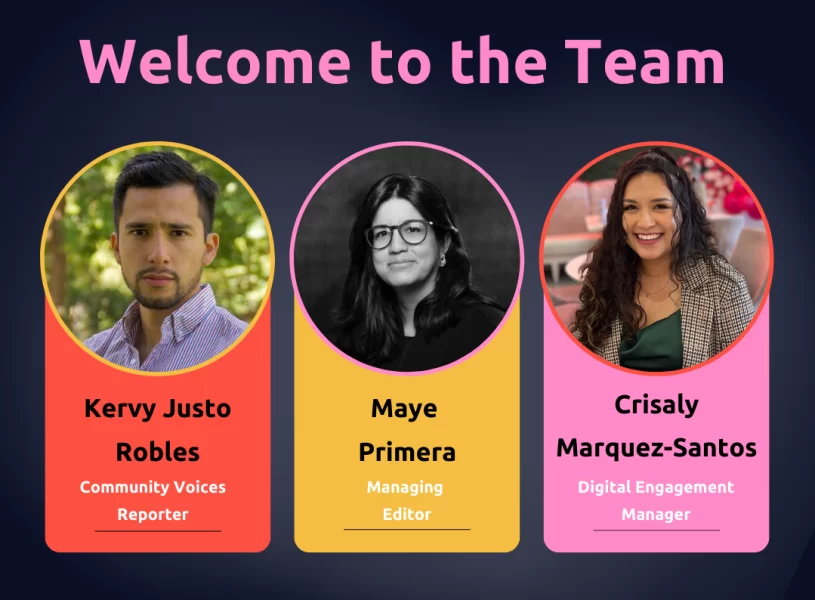
Innovative News Delivery Attracts Spanish Speakers
Community-centered ethnic media outlets (CCEMOs), producing content for Spanish-speaking Latinos using accessible formats such as WhatsApp, email and text messages, are having a “profound impact” on a community victimized by misinformation and news deserts, Yamil R. Velez wrote March 22 for Columbia Journalism Review.
Velez, an assistant professor of political science at Columbia University, wrote that research by two colleagues and himself found that CCEMOs such as El Tímpano in the Bay area, Enlace Latino NC in North Carolina and Conecta Arizona “deliver accurate information and [enable] Latinos to engage actively in the political process.
“Those who consumed content from CCEMOs were more likely to say they ‘felt qualified to participate in politics’ and were more likely to say they would vote during the midterms. They followed local news, but this did not come at the expense of being aware of national politics. Those in our CCEMO group were just as knowledgeable about domestic and international events as those in the control group.
“Even consumers who preferred entertainment benefited from these outlets, demonstrating that CCEMOs have the potential to reach a wider range of Latino voters than traditional ethnic media outlets. . . .”
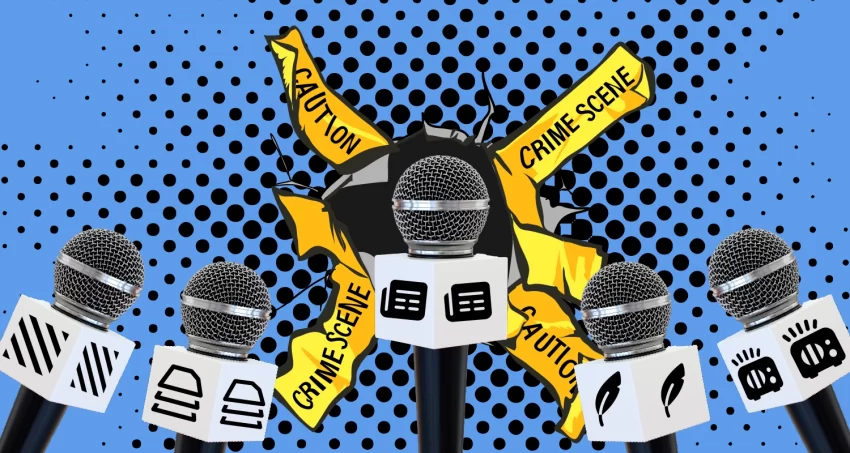
Ideas for Ending Media Complicity in Crime
“We amplify an inaccurate narrative about who is responsible for crime,” says Kelly McBride (pictured, below), Poynter Institute senior vice president and chair of the Craig Newmark Center for Ethics and Leadership. “We do this in a couple of different ways. We know that law enforcement has a narrative about crime that is inaccurate, that overemphasizes policing of underrepresented communities.
“For example: Black people are roughly 12-13% of the general population, according to the census. And when you look at all the arrest data, Black people are arrested at twice that rate, so they’re arrested in the mid-20s. Then, when you look at news media stories about crime, Black people represent 37% of the people who are arrested, so that is an inaccuracy right there.
 “It reinforces the inaccurate narrative of the Black criminal. Nobody sits down and says, ‘Hey, we’re gonna only do stories about Black criminals.’ But in the system of how specific incidents of crime become news stories, there is a pattern of choices that reinforce inaccurate stereotypes. So that’s one level of harm.
“It reinforces the inaccurate narrative of the Black criminal. Nobody sits down and says, ‘Hey, we’re gonna only do stories about Black criminals.’ But in the system of how specific incidents of crime become news stories, there is a pattern of choices that reinforce inaccurate stereotypes. So that’s one level of harm.
“The other level of harm: Police have a very large public relations arm. In allowing police to share their unchecked narrative of crime, we have forgotten that they have a motive — they get federal grants and state grants and funding that basically grow their organization, not on the actual rate of crime but on the perception of crime because it’s political. Public policy changes based on public perception of crime, and the press becomes an arm of the law enforcement public relations industry when they don’t critically challenge the law enforcement narrative.”
McBride also said, “As journalists, we are disingenuous about why we cover crime. We tell ourselves that we cover it so that the public can keep itself safe. And yet the information that we give them doesn’t help anybody keep themselves safe. There’s a huge disconnect between why we say we cover crime and how we actually cover crime. That disconnect makes journalism part of the problem when it comes to reforming our criminal justice system, when journalism really should be part of the solution.”
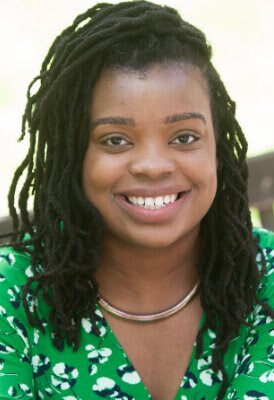 McBride and Cheryl Thompson-Morton (pictured), Black Media Initiative director for the Center for Community Media at the Newmark Journalism School, are behind “Transforming Crime Coverage Into Public Safety Journalism,” a seven-month course designed to help newsrooms quite literally transform the way they cover police and public safety in their communities. McBride spoke with Poynter’s Barbara Allen about the course.
McBride and Cheryl Thompson-Morton (pictured), Black Media Initiative director for the Center for Community Media at the Newmark Journalism School, are behind “Transforming Crime Coverage Into Public Safety Journalism,” a seven-month course designed to help newsrooms quite literally transform the way they cover police and public safety in their communities. McBride spoke with Poynter’s Barbara Allen about the course.
“Here’s a very specific example,” McBride continued. “In the 1990s, one pro-law enforcement social scientist began a narrative about youth superpredators, and the media was complicit in repeating that narrative over and over. As a result of that, 48 out of 50 states changed their laws, lowering the threshold at which teens were jailed with adults and tried as adults. The juvenile justice system was completely overhauled, based on the superpredator narrative.
“When we look back at the data now, the foundation for that [superpredator] narrative was completely erroneous. There were not superpredators, but we literally changed the entire justice system that addresses juvenile crime in the United States, based on public perception. . . .”
- Justin Gamble, CNN: Using artificial intelligence and archival news articles, this teen found that Black homicide victims were less humanized in news coverage

Readers Tell How Changing Demographics Affect Names
 “Two years ago this week, a 21-year-old gunman in Atlanta massacred eight people in three spas,” The Washington Post reported March 17. “Six of those victims were women of Asian descent. It prompted a wave of reporting about racist attacks and violence, and for Marian Chia-Ming Liu (pictured), it began a deeply introspective journey – one that prompted thousands of Washington Post readers to reach out with stories about their own experiences with their names.
“Two years ago this week, a 21-year-old gunman in Atlanta massacred eight people in three spas,” The Washington Post reported March 17. “Six of those victims were women of Asian descent. It prompted a wave of reporting about racist attacks and violence, and for Marian Chia-Ming Liu (pictured), it began a deeply introspective journey – one that prompted thousands of Washington Post readers to reach out with stories about their own experiences with their names.
“Marian talks with Elahe Izadi about what she discovered on her name journey, and what other people from around the country have shared with her along the way.”
The project “was produced in conjunction with About US, a Washington Post forum to explore issues of race and identity in the United States.”
It begins, “Few things signal the challenge America faces as it adapts to its evolving demographics more than a name.
“Four in 10 Americans now identify as non-White, according to the latest census report, and they are transforming what counts as a common U.S. name.
“So much so that when Katherine He analyzed census data of 348 million American baby names between 1880 to 2017, for the Linguistic Society of America, she found that boys are now four times as likely to have ‘unique’ names, defined as ‘novel, non-conventional names’ per 1,000 people. Girls are almost three times as likely to have a ‘unique’ name.
“ ‘That obviously has to do with an influx of immigrants and names from other cultures coming in,’ He said.
“Translation: In many cases, ‘unique’ means non-White. . . .”
- Elizabeth Mitchell Elder and Matthew Hayes: University of Chicago Press Journal of Politics: Signaling Race, Ethnicity, and Gender with Names: Challenges and Recommendations
Short Takes
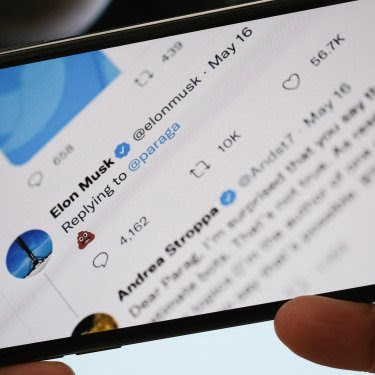
- “Journalists who email Twitter’s press department for information about the company or to contact one of its representatives are now sent an automated response containing nothing but a poop emoji – 💩. Reporters Without Borders (RSF) condemns this latest expression of Twitter owner Elon Musk’s contempt for the media,” the press-freedom organization reported March 22. “This ‘communication strategy’ by a social media platform with more than 200 million daily users was announced in a tweet by Musk in person. . . .”
 “Alberto Ibargüen (pictured), president of the John S. and James L. Knight Foundation since 2005, publicly announced his decision to retire from the $2.5 billion philanthropy this week,” the foundation announced March 24. “Knight Foundation’s board of trustees will begin a national search immediately and Ibargüen’s resignation will be effective upon the appointment of a successor.” The Foundation said he led “the transformation of the Knight brothers’ legacy for a new era, investing over $2.3 billion to support informed, engaged and inclusive communities through journalism, arts, economic development and research. . . .”
“Alberto Ibargüen (pictured), president of the John S. and James L. Knight Foundation since 2005, publicly announced his decision to retire from the $2.5 billion philanthropy this week,” the foundation announced March 24. “Knight Foundation’s board of trustees will begin a national search immediately and Ibargüen’s resignation will be effective upon the appointment of a successor.” The Foundation said he led “the transformation of the Knight brothers’ legacy for a new era, investing over $2.3 billion to support informed, engaged and inclusive communities through journalism, arts, economic development and research. . . .”
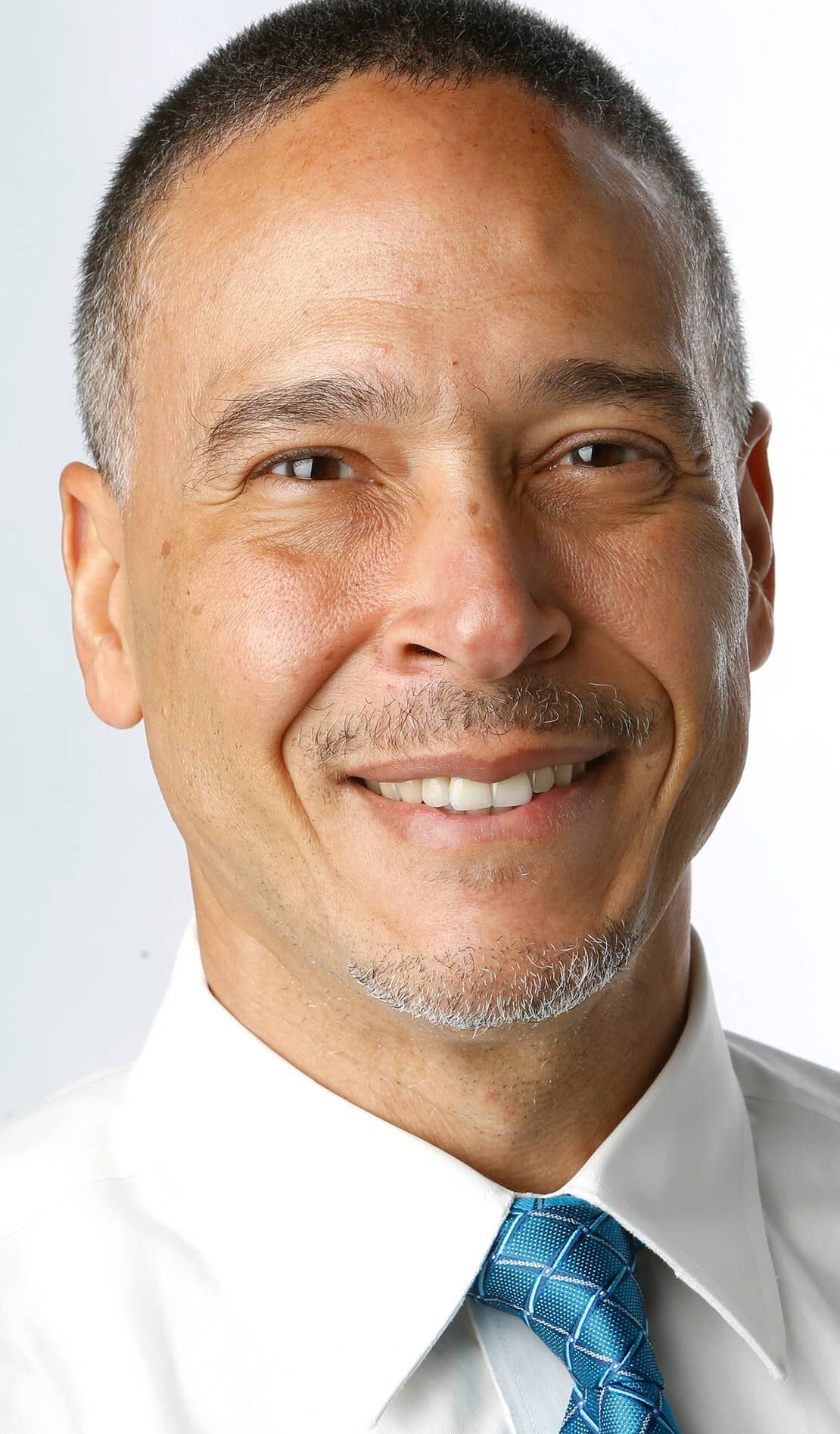 Randy Archibold (pictured), the New York Times sports editor who, when named in 2019, became the first Black journalist in that job, tweeted March 22 that he is leaving that position. He is “to become Senior Editor for News @nytimes, helping to drive overall coverage and running things on the weekends. I salute the most amazing sports journalists in America as I take on a thrilling new challenge.”
Randy Archibold (pictured), the New York Times sports editor who, when named in 2019, became the first Black journalist in that job, tweeted March 22 that he is leaving that position. He is “to become Senior Editor for News @nytimes, helping to drive overall coverage and running things on the weekends. I salute the most amazing sports journalists in America as I take on a thrilling new challenge.”
- “With the federal government spending a pittance of its advertising dollars with Black-owned media and President Biden demanding that agencies expand contracting opportunities for historically disadvantaged businesses, including those owned by women and people of color, Housing and Urban Development Secretary Marcia Fudge has made a specific pledge to African American publishers and media company owners,” Stacy M. Brown reported Wednesday for the National Newspaper Publishers Association.
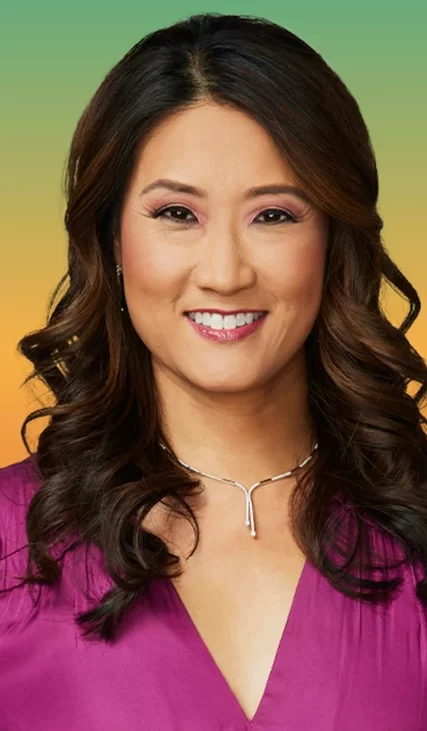 “In the lead up to Asian American heritage month, MSNBC’s Katie Phang (pictured) will sit down with some of this generation’s most powerful Asian American and Pacific Islander women,” Sakshi Venkatraman reported for NBC News. “Airing on April 2, ‘The Culture Is: AAPI Women’ will feature big names like author Min Jin Lee; ‘Turning Red’ writer Julia Cho; former Hillary Clinton chief of staff Huma Abedin; and Rise CEO Amanda Nguyen. They will sit for a meal and a raw discussion on love, parenthood, professional struggles and what it means to be Asian American in this era. . . .”
“In the lead up to Asian American heritage month, MSNBC’s Katie Phang (pictured) will sit down with some of this generation’s most powerful Asian American and Pacific Islander women,” Sakshi Venkatraman reported for NBC News. “Airing on April 2, ‘The Culture Is: AAPI Women’ will feature big names like author Min Jin Lee; ‘Turning Red’ writer Julia Cho; former Hillary Clinton chief of staff Huma Abedin; and Rise CEO Amanda Nguyen. They will sit for a meal and a raw discussion on love, parenthood, professional struggles and what it means to be Asian American in this era. . . .”
- “Asian Americans are most likely to participate in employee affinity organizations, but don’t feel sufficiently supported within their companies, a new survey shows,” Kimmy Yam reported March 22 for NBC News. The study by AAPI Data and polling firm Momentive, “which examined diversity across American life, found that Asian Americans participate in employee-led groups at 16%, far exceeding the 8% of workers overall. . . . Still, almost one-quarter of Asian American workers reported feeling excluded from discussions about diversity and inclusion at their workplace. . . .”
 “Whoopi Goldberg is the latest celebrity to weigh in on the topic of WLBT anchor Barbie Bassett (pictured) being removed from the WLBT staff website listing and taken off the air after Bassett quoted a Snoop Dogg saying in a live segment March 8,” Scott Hawkins reported Wednesday for the Mississippi Clarion-Ledger. “Goldberg introduced the topic on ‘The View’ daytime talk show episode Monday. ‘Charlamagne tha God‘ also discussed the issue on his nationally syndicated radio show this week. ‘Mississippi news anchor and meteorologist Barbie Bassett has been off the air since she repeated a lyric by Snoop Dogg that used his term for the N word,’ Goldberg said, adding that Bassett has been with WLBT for 23 years, and her absence has led to speculation that Bassett has been fired. . . . “
“Whoopi Goldberg is the latest celebrity to weigh in on the topic of WLBT anchor Barbie Bassett (pictured) being removed from the WLBT staff website listing and taken off the air after Bassett quoted a Snoop Dogg saying in a live segment March 8,” Scott Hawkins reported Wednesday for the Mississippi Clarion-Ledger. “Goldberg introduced the topic on ‘The View’ daytime talk show episode Monday. ‘Charlamagne tha God‘ also discussed the issue on his nationally syndicated radio show this week. ‘Mississippi news anchor and meteorologist Barbie Bassett has been off the air since she repeated a lyric by Snoop Dogg that used his term for the N word,’ Goldberg said, adding that Bassett has been with WLBT for 23 years, and her absence has led to speculation that Bassett has been fired. . . . “
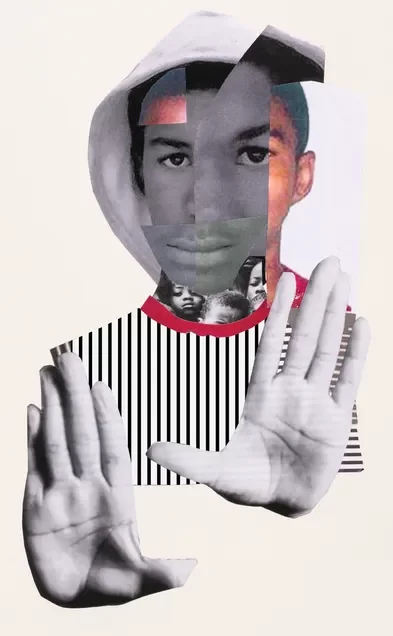 New York magazine won an American Magazine Award for best single-topic Issue for “Ten Years Since Trayvon: The story of the first decade of Black Lives Matter” (pictured). Winning stories included New York’s buzzy ‘The Year of the Nepo Baby’ and Rozina Ali’s ‘The Battle for Baby L.’ for The New York Times Magazine. . . . The honorees for ASME NEXT Awards for Journalists Under 30 included Adrienne N. Green, deputy editor, special projects, The New York Times Magazine and Jack Herrera, senior editor, Texas Monthly,” the organization announced Tuesday.
New York magazine won an American Magazine Award for best single-topic Issue for “Ten Years Since Trayvon: The story of the first decade of Black Lives Matter” (pictured). Winning stories included New York’s buzzy ‘The Year of the Nepo Baby’ and Rozina Ali’s ‘The Battle for Baby L.’ for The New York Times Magazine. . . . The honorees for ASME NEXT Awards for Journalists Under 30 included Adrienne N. Green, deputy editor, special projects, The New York Times Magazine and Jack Herrera, senior editor, Texas Monthly,” the organization announced Tuesday.
- “It has happened again: A well-meaning journalist has written a story about Native America and yet they did not interview a single member of the tribe,” Becky Tallent wrote Wednesday for SpokaneFāVS. “Not one. Nada. In fact, in the past three or four stories I have seen about tribal issues in non-tribal media outlets, no one has interviewed a single member of the tribe in question. Ethically, this is just wrong. Journalists are called on to tell as many sides to a story as possible, and, yet, when some reporters cover tribes, they do not think to speak with tribal members. . . .”
- ‘In the hours after some of Silicon Valley Bank’s biggest customers started pulling out their money, a WhatsApp group of startup founders who are immigrants of color ballooned to more than 1,000 members,” Kat Stafford and Claire Savage reported Monday for the Associated Press. They also wrote, “While Wall Street struggles to contain the banking crisis after the swift demise of SVB — the nation’s 16th largest bank and the biggest to fail since the 2008 financial meltdown — industry experts predict it could become even harder for people of color to secure funding or a financial home supporting their startups. . . .” Stafford, based in Detroit, is a national investigative race writer for the AP’s Race and Ethnicity team. Savage reported from Chicago and is a corps member for the Associated Press/Report for America Statehouse News Initiative.
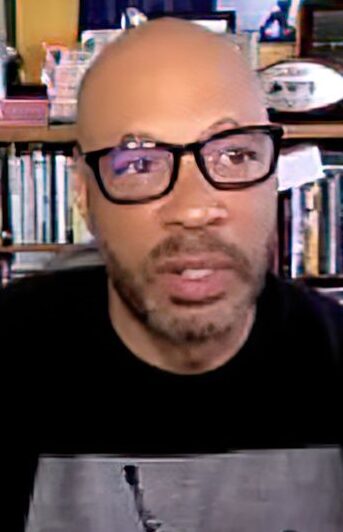 “The day after the fallout from Jim Trotter’s (pictured, by Don Baker at Journal-isms Roundtable) announcement of the NFL Network’s refusal to renew his contract, Trotter and Roger Goodell responded,” Kyle T. Mosley reported for Sports Illustrated. “On Tuesday at the 2023 NFL Owners Meetings in Arizona, Commissioner Goodell addressed Jim Trotter’s employment status with NFL Media. ‘I wasn’t part of that decision and actually was just made aware of it about 10 minutes before I walked in here,’ Goodell remarked. ‘So, no, I don’t believe that had anything to do with it.’ . .” Separately, the National Coalition of Minority Football Coaches tweeted support for Trotter: “We stand in support of him, and anybody else, who exposes a culture contrary to fundamental fairness and racial dignity.”
“The day after the fallout from Jim Trotter’s (pictured, by Don Baker at Journal-isms Roundtable) announcement of the NFL Network’s refusal to renew his contract, Trotter and Roger Goodell responded,” Kyle T. Mosley reported for Sports Illustrated. “On Tuesday at the 2023 NFL Owners Meetings in Arizona, Commissioner Goodell addressed Jim Trotter’s employment status with NFL Media. ‘I wasn’t part of that decision and actually was just made aware of it about 10 minutes before I walked in here,’ Goodell remarked. ‘So, no, I don’t believe that had anything to do with it.’ . .” Separately, the National Coalition of Minority Football Coaches tweeted support for Trotter: “We stand in support of him, and anybody else, who exposes a culture contrary to fundamental fairness and racial dignity.”
 Joshua Johnson (pictured), formerly at Washington’s WAMU-FM public radio and NBC News and MSNBC, tweeted on his March 22 birthday that he will have a new show very soon, to be called “The Night Light with Joshua Johnson.” That show will continue what he tried to do on his previous shows, bringing light into people’s lives, Johnson said. He also plans to conduct a course for podcasters about interviewing people. The launch date is April 3. Johnson also said he plans to leave New York. “My boyfriend and I are looking at other parts of the country.”
Joshua Johnson (pictured), formerly at Washington’s WAMU-FM public radio and NBC News and MSNBC, tweeted on his March 22 birthday that he will have a new show very soon, to be called “The Night Light with Joshua Johnson.” That show will continue what he tried to do on his previous shows, bringing light into people’s lives, Johnson said. He also plans to conduct a course for podcasters about interviewing people. The launch date is April 3. Johnson also said he plans to leave New York. “My boyfriend and I are looking at other parts of the country.”
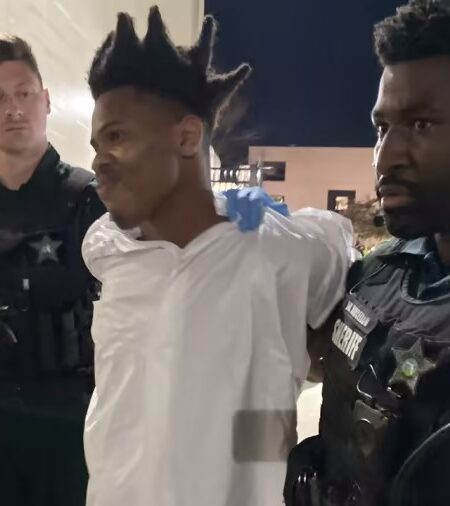 An Orange County grand jury has indicted Keith Moses (pictured) on first-degree murder charges in the fatal shooting of three people, including a 9-year-old girl and a Spectrum News 13 journalist, in Pine Hills last month,” Christopher Cann reported Friday for the Orlando Sentinel. “Moses, 19, faces 16 total charges including two counts of attempted murder, four counts of shooting at or within a car or dwelling, three counts of resisting an officer without violence and charges of burglary, trespassing and illegal firearm possession. . . . The State Attorney’s Office has not yet decided whether prosecutors will seek the death penalty. . . .”
An Orange County grand jury has indicted Keith Moses (pictured) on first-degree murder charges in the fatal shooting of three people, including a 9-year-old girl and a Spectrum News 13 journalist, in Pine Hills last month,” Christopher Cann reported Friday for the Orlando Sentinel. “Moses, 19, faces 16 total charges including two counts of attempted murder, four counts of shooting at or within a car or dwelling, three counts of resisting an officer without violence and charges of burglary, trespassing and illegal firearm possession. . . . The State Attorney’s Office has not yet decided whether prosecutors will seek the death penalty. . . .”
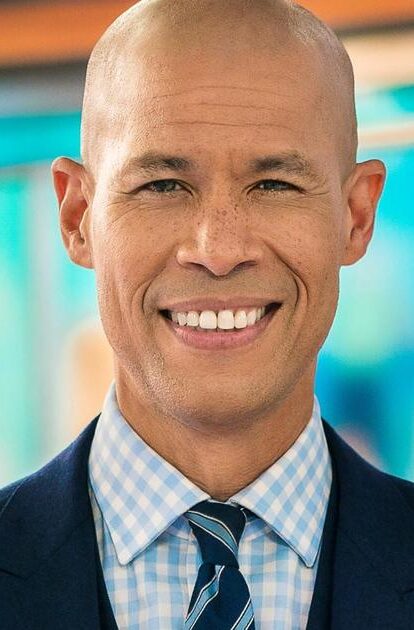 “Vlad Duthiers (pictured), CBS News correspondent, has been named featured host of CBS Mornings while continuing to anchor CBS News Live on the CBS News Streaming Network. The announcement was made on the morning show March 27,” Michael Malone reported for Broadcasting & Cable.
“Vlad Duthiers (pictured), CBS News correspondent, has been named featured host of CBS Mornings while continuing to anchor CBS News Live on the CBS News Streaming Network. The announcement was made on the morning show March 27,” Michael Malone reported for Broadcasting & Cable.
- “Today at 4:08 pm, March 31, 2023, Common Pleas court Judge Lucretia Clemons denied Mumia Abu-Jamal’s request for a new trial,” [PDF] Noelle Hanrahan, Prison Radio legal director, messaged Abu-Jamal supporters Friday. “This is simply devastating news. After 43 years in prison, Mumia Abu-Jamal has exhausted nearly all of his avenues for relief.” Craig R. McCoy wrote Dec. 16 in the Philadelphia Inquirer, “Abu-Jamal, 68, has filed eight appeals since his conviction on charges of killing [police officer Daniel] Faulkner, who was 25 when he died on Dec. 9, 1981. His one victory came in 2001, when a federal judge overturned Abu-Jamal’s death sentence, but upheld his conviction.” Hanrahan wrote, “If you put thick blinders on that block out all reality and rely on procedural minutia for cover, honestly, it is still impossible to avoid the scorchingly blatant racism of trial Judge Albert Sabo, Assistant District Attorney Joseph McGill, Mayor and former police chief Frank Rizzo, District Attorney during Mumia’s trial Ed Rendell, and Ron Castille, DA and former Pennsylvania Supreme Court Justice.”
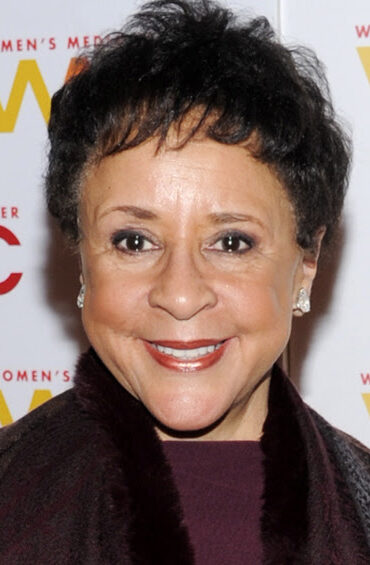 The philanthropist, sports franchise executive and co-founder of Black Entertainment Television, Sheila Johnson (pictured), has a memoir scheduled for September,” the Associated Press reported Monday. “ ‘Walk Through Fire’ will document her rise from suburban Chicago to becoming a pioneering billionaire as a Black woman, and how she endured her troubled marriage to fellow BET founder Robert L. Johnson.” Last month, former BET CEO Debra Lee revealed how her relationship with Bob Johnson turned toxic in her newly published, “I Am Debra Lee.”
The philanthropist, sports franchise executive and co-founder of Black Entertainment Television, Sheila Johnson (pictured), has a memoir scheduled for September,” the Associated Press reported Monday. “ ‘Walk Through Fire’ will document her rise from suburban Chicago to becoming a pioneering billionaire as a Black woman, and how she endured her troubled marriage to fellow BET founder Robert L. Johnson.” Last month, former BET CEO Debra Lee revealed how her relationship with Bob Johnson turned toxic in her newly published, “I Am Debra Lee.”
- According to the fact-checking platform Aos Fatos, Brazil’s former president Jair Bolsonaro “made 1,383 false statements and 1,221 distorted statements about the coronavirus in his four years in office. Many of them ended up in the titles or headlines of major Brazilian news outlets without contextualization or correction, amplifying the denialist discourse of the then-president,” Carolina de Assis reported March 14 for LatAm Journalism Review.
- In May 2022, Rodrigo Chaves, a former World Bank economist and former finance minister, assumed the presidency of Costa Rica “with promises of ‘historic changes’ in the face of growing inequality,” André Duchiade reported March 21 for LatAm Journalism Review. “During the campaign, Costa Rican media reported serious allegations against him, including suspicions of sexual harassment and illegal campaign financing. In response to this, the then-candidate and now president began a systematic persecution of some news outlets, with frequent verbal attacks and attempts to use the institutions for political purposes. . . .”
- Authorities in Ecuador are investigating small explosives sent to journalists at several media outlets, one of which detonated but did not injure anyone, and they said Tuesday they have a suspect,” the Associated Press reported March 21. Interior Minister Juan Zapata “said all five of the packages sent in recent days included similar small explosive devices disguised as USB memory sticks. One such stick exploded Monday in the newsroom of the Ecuavisa news channel when the journalist it was addressed to, Lenín Artieda, inserted the device into a computer. The computer was destroyed but nobody was hurt. . . .”
- In Malawi, the co-chairperson of a presidential task force on covid-19 and cholera has appealed to journalists to triple their efforts in disseminating information on the two pandemics. Watipaso Mzungu reported March 24 for the Nyasa Times. “Since February 2022, Malawi has been experiencing cholera outbreak, which lead to loss of many lives and over 53, 000 people being affected as of March 14 . . . .”
- “The family of Cameroonian journalist Martinez Zogo, who was killed in January, say they have received threats from officials suspected of involvement in his death,” Moki Edwin Kindzeka reported March 21 for the Voice of America. “As authorities investigate the murder of the popular radio announcer and journalist, a debate has been sparked between family members who want him buried and others who insist on waiting until results of an investigation are made public. Zogo’s mutilated remains were found near a bush in Yaounde on January 22, five days after he was abducted by unknown individuals.” A military court in Cameroon has charged a media mogul, a military officer, and a police commissioner with complicity in the January torture and killing.
To subscribe at no cost, please send an email to journal-isms+subscribe@groups.io and say who you are.
Facebook users: “Like” “Richard Prince’s Journal-isms” on Facebook.
Follow Richard Prince on Twitter @princeeditor
Richard Prince’s Journal-isms originates from Washington. It began in print before most of us knew what the internet was, and it would like to be referred to as a “column.” Any views expressed in the column are those of the person or organization quoted and not those of any other entity. Send tips, comments and concerns to Richard Prince at journal-isms+owner@
View previous columns (after Feb. 13, 2016).
View previous columns (before Feb. 13, 2016)
- Diversity’s Greatest Hits, 2018 (Jan. 4, 2019)
- Book Notes: Is Taking a Knee Really All That? (Dec. 20, 2018)
- Book Notes: Challenging ’45’ and Proudly Telling the Story (Dec. 18, 2018)
- Book Notes: Get Down With the Legends! (Dec. 11, 2018)
- Journalist Richard Prince w/Joe Madison (Sirius XM, April 18, 2018) (podcast)
- Richard Prince (journalist) (Wikipedia entry)
- February 2018 Podcast: Richard “Dick” Prince on the need for newsroom diversity (Gabriel Greschler, Student Press Law Center, Feb. 26, 2018)
- Diversity’s Greatest Hits, 2017 — Where Will They Take Us in the Year Ahead?
- Book Notes: Best Sellers, Uncovered Treasures, Overlooked History (Dec. 19, 2017)
- An advocate for diversity in the media is still pressing for representation, (Courtland Milloy, Washington Post, Nov. 28, 2017)
- Morgan Global Journalism Review: Journal-isms Journeys On (Aug. 31, 2017)
- Diversity’s Greatest Hits, 2016
- Book Notes: 16 Writers Dish About ‘Chelle,’ the First Lady
- Book Notes: From Coretta to Barack, and in Search of the Godfather
- Journal-isms’ Richard Prince Wants Your Ideas (FishbowlDC, Feb. 26, 2016)
- “JOURNAL-ISMS” IS LATEST TO BEAR BRUNT OF INDUSTRY’S ECONOMIC WOES (Feb. 19, 2016)
- Richard Prince with Charlayne Hunter-Gault, “PBS NewsHour,” “What stagnant diversity means for America’s newsrooms” (Dec. 15, 2015)
- Book Notes: Journalists Follow Their Passions
- Book Notes: Journalists Who Rocked Their World
- Book Notes: Hands Up! Read This!
- Book Notes: New Cosby Bio Looks Like a Best-Seller
- Journo-diversity advocate turns attention to Ezra Klein project (Erik Wemple, Washington Post, March 5, 2014)

